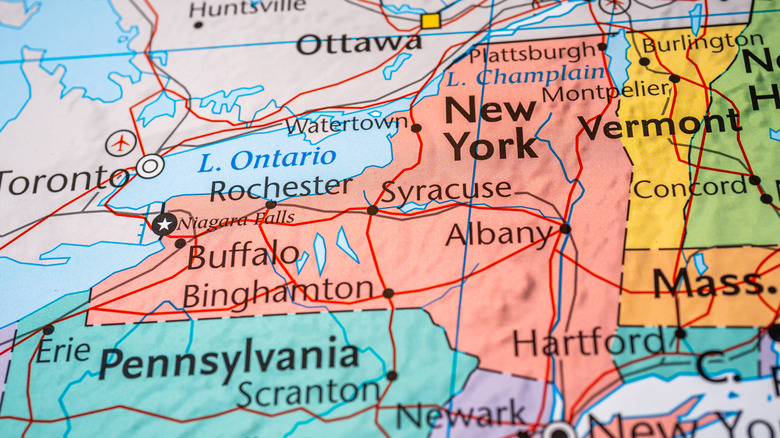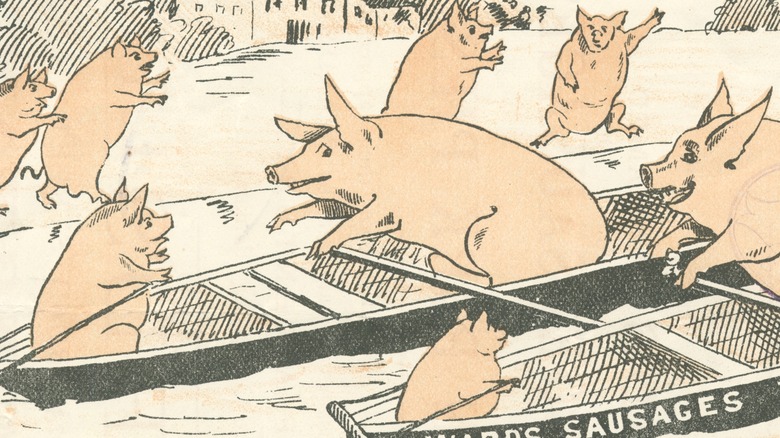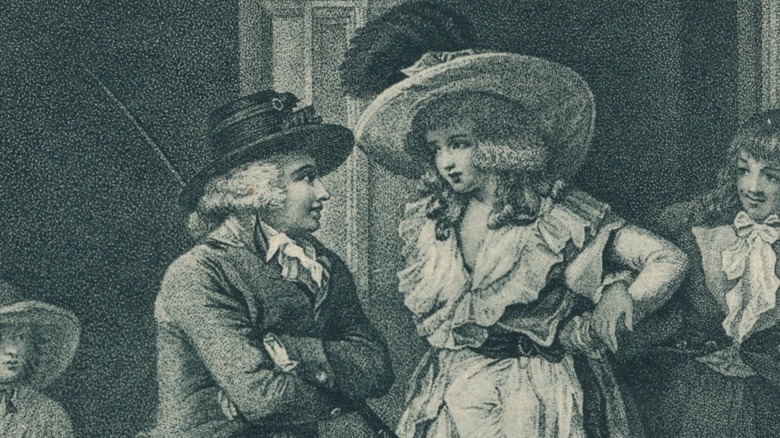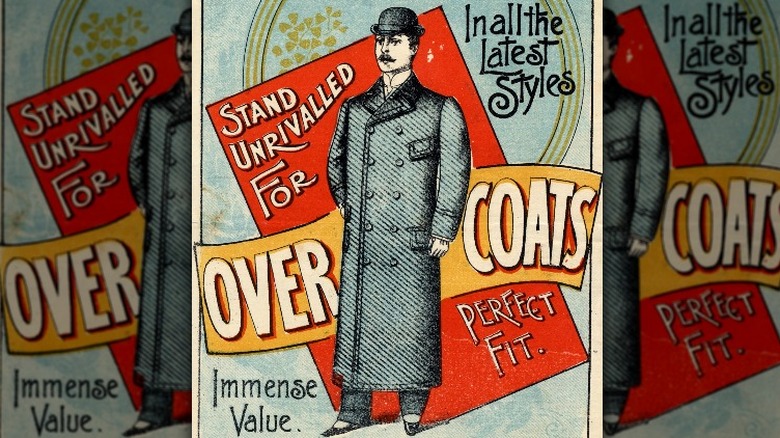Weirdest Laws In New York
When it comes to the United States' bizarre patchwork of contradictory, outdated, or forgotten blue laws, New York is better than most states at keeping its local ordinances up to date. Nonetheless, some relics of the state's nearly 400-year-old legislative history remain, enshrining the social mores and odd governmental movements of the past.
If you're interested in doing a deep dive (and if you live in New York state), you can find your city or county's local laws at the New York Department of State Local Law Search website, or browse the state's general laws at the NY State Legislative Info site search index, or read some of the state's historic statutes on the New York State Library website. Here are just a few of the weirdest laws we found that are still in effect in New York, even if there's nobody enforcing them. From fashion faux pas to catcalling bans, some of these laws are well-intended in concept but poor in execution, a few are problematic, and some are just oddities only history could possibly explain.
Banned: Mobs of Swine
An 1882 provision titled "Running at large of swine" cited in the Revised Statutes of the State of New York, 1882, Vol. 1, p. 1-481 (pg. 369) forbids hordes of swine from "running at large." Clearly, this was a problem at the time, or perhaps the law was citing a specific traditional event. If your swine are deemed guilty of running at large, you will be held responsible for the property damage they occur. Additionally, you may petition the board of electors for permission to let your swine roam freely.
"Swine shall not be permitted to run at large upon either of the said reservations, or any part thereof, unless a majority of the electors assembled in annual meeting for the election of officers of the nation shall authorize and regulate such running at large," the text of the law reads. "The owner of any swine or other domestic animal which shall trespass upon the duly appropriated and described land of another, shall be liable for such trespass to such other in damages."
Banned: Seducing virtuous women
An 1848 ordinance titled "An Act to Ban Seduction as a Crime" prohibits the seduction of unmarried women known to be of "chaste" character as a misdemeanor punishable by imprisonment. The text of the law can be found in the Revised Statutes of the State of New York, 1882, Vol. 3 p. 2374-2891 (pg. 108).
"Any man who shall, under promise of marriage, seduce, and have illicit connexion with any unmarried female of previous chaste character, shall be guilty of a misdemeanor, and upon conviction shall be punished by imprisonment in a state prison not exceeding five years or by imprisonment in a county jail not exceeding one year; provided that no conviction shall be had under the provisions of this act, on the testimony of the female seduced, unsupported by other evidence, nor unless indictment shall be found within two years after the commission of the offense; and provided further that the subsequent marriage of the parties may be plead in bar of a conviction," the New York law states.
Banned: Clashing outfits
In the small town of Carmel, New York, one antiquated law prohibits men from wearing non-matching pants and jackets while in public (as noted in Only in Your State). It's unclear just what the penalty would be if found guilty of this fashion faux pas, but hopefully the threat of a fine may be worth buying a matching outfit. While this is a law for the less than 35,000 citizens in Carmel (via Census), this is good advice to follow even if clashing outfits aren't an infraction in your state.
Wondering how to comply with this law? Generally, avoid mixing patterned outfits and try to pair neutral tones with bolder tones, if you must wear bolder tones at all. However, you probably do not need to worry about this law. If the police are the ones enforcing it, it's doubtful you'll find yourself subject to rigorous scrutiny from anyone with a serious fashion fixation.
Banned: Drunk Catcalling
If you've ever been accosted by a group of disorderly men in a vehicle shouting lewd come-ons at you as you walk home from work, you are most likely well-aware that the centuries have done little to rein in the problem of street harassment. In the early 1900s, when "moral hygiene" was all the rage, a legislative movement to curb public displays of indecency was in full swing, resulting in this 1902 law introduced by state representative Francis G. Landon of Dutchess, as Smithsonian Magazine reported.
"Any person who is intoxicated in a public place, or who shall by any offensive or disorderly act or language, annoy or interfere with any person or persons in any place or with the passengers of any public stage, railroad car or ferryboat, or who shall disturb or offend the occupants of such conveyance by any disorderly act or language or display, although such conduct may not amount to an assault or battery, shall be guilty of a misdemeanor."
The fine is up to $500, but likely not enforced.
Banned: Small talk in elevators
If you've ever visited New York City, you know there are careful unspoken rules regarding small talk. In a city with millions of residents for whom personal space is a rare commodity, chatting up a total stranger could get you funny looks and be considered an act of hostility rather than friendliness.
In fact, according to one outdated law, making small talk in elevators is actually banned. It's unclear if anyone has ever actually been arrested for commenting on the weather while en route to the 23rd floor, but as CBS Local reports, this law remains on the books. Additionally, according to the law, one must conduct themselves with absolute composure, including folding their hands and facing the door with a quiet dignity. "While riding in an elevator, one must talk to no one, and fold his hands while looking toward the door," the regulation states. You might not get a citation for this, but following this law can't hurt when it comes to good manners in the city. Just don't be weird about it.





